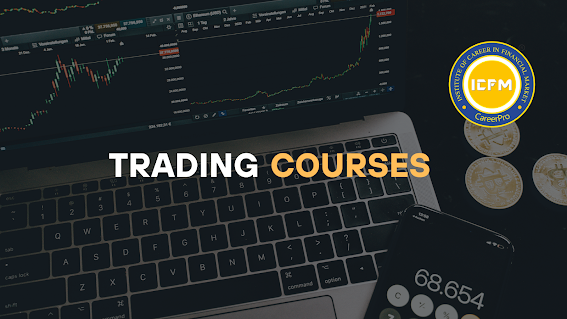Trading Courses
Trading courses are designed to equip individuals with the knowledge and skills necessary to navigate the complexities of the financial markets effectively. These courses cover a wide range of topics, including technical analysis, fundamental analysis, risk management, trading strategies, and the psychological aspects of trading. They cater to different levels of expertise, from beginners who are new to the world of trading to experienced traders looking to refine their strategies and enhance their performance. The structured approach of trading courses helps in building a solid foundation in financial markets, starting with the basics of how markets operate, types of financial instruments, and the mechanisms of trading.
One of the key components of trading courses is technical analysis, which involves analyzing historical price data and trading volumes to forecast future price movements. This includes learning about chart patterns, indicators, oscillators, and trend analysis. Courses often provide practical training on how to use various technical analysis tools and software, enabling traders to make data-driven decisions. Fundamental analysis, another critical aspect, focuses on evaluating a company’s financial health, economic conditions, and industry trends to determine the intrinsic value of its stocks. This helps traders make informed decisions based on a comprehensive understanding of market fundamentals.
Risk management is another crucial area covered in trading courses. Effective risk management strategies are essential for protecting capital and ensuring long-term profitability. Courses teach participants how to set stop-loss orders, manage leverage, diversify their portfolios, and control emotional responses to market fluctuations. Understanding the psychology of trading is also emphasized, as emotional discipline and mental fortitude are vital for success in trading. Courses often address common psychological pitfalls such as fear, greed, and overconfidence, and provide techniques to develop a disciplined and objective trading mindset.
Trading courses also delve into various trading strategies, including day trading, swing trading, and position trading. Each strategy has its own set of principles, timeframes, and risk profiles. Day trading involves making multiple trades within a single day, aiming to capitalize on short-term market movements. Swing trading focuses on capturing price swings over several days or weeks, while position trading involves holding positions for longer periods to benefit from broader market trends. These courses provide detailed guidance on how to develop and implement these strategies effectively, tailored to individual risk tolerance and trading goals.
Many trading courses incorporate practical components such as simulated trading environments, where participants can practice executing trades without risking real money. These simulations help in building confidence and gaining experience in applying theoretical knowledge to real-world scenarios. Additionally, some courses offer mentorship and support from experienced traders, providing personalized feedback and insights to help learners improve their trading performance.
The mode of delivery for trading courses varies, with options including online classes, webinars, in-person workshops, and self-paced learning modules. Online courses offer flexibility, allowing learners to study at their own pace and from any location. In-person workshops and seminars provide opportunities for interactive learning and networking with peers and industry experts. Many courses also offer access to exclusive trading communities, forums, and resources, fostering a collaborative learning environment.
In summary, trading courses provide a comprehensive education in the financial markets, covering essential topics such as technical and fundamental analysis, risk management, trading strategies, and trading psychology. They cater to various skill levels and learning preferences, offering both theoretical knowledge and practical experience. By equipping participants with the necessary tools and techniques, trading courses help individuals build a solid foundation, develop effective trading strategies, and enhance their overall trading performance, ultimately enabling them to navigate the financial markets with confidence and competence.

.png)


Comments
Post a Comment